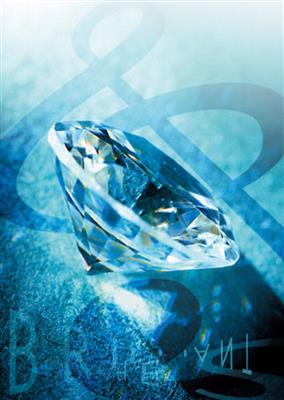Results
-
£54.99
-
£89.99
Walzerzauber
The genre operetta (literally meaning 'small opera') originated halfway through the 19th century, as an antidote to the ever-lengthening opra comique, which by that time contained more and more tragic intrigues as well. In this charming work, three waltz melodies from different operettas come together. First, we hear 'Lippen schweigen' from Die lustige Witwe (The Merry Widow) by Franz Lhar (1870-1948). Then follows 'Ja, das alles auf Ehr' from Der Zigeunerbaron (The Gypsy Baron) by Johann Strauss the younger (1825-1899), after which 'Tanzen mchte ich' from Die Czardasfrstin by Emmerich Klmn (1882-1953) closes the medley in a cheerful way. Franz Watz has skilfullyconnected the waltzes to become a magical whole.
Estimated dispatch 7-14 working days
-
£129.99
Tivoli Festival Overture - Søren Hyldgaard
The Tivoli Festival Overture takes its inspiration from the famed Tivoli gardens in Copenhagen. It is also a tribute to the first Head of Music for the Tivoli, Hans Christian Lubmye, who was known as 'The Strauss of the North'. Soren has included tiny glimpses of Lumbye's Champaign Galop and Pictures of a Dream but carefully wrapped in his own tuneful melodic creations.
Estimated dispatch 7-14 working days
-
 £81.90
£81.90 -
 £81.90
£81.90 -
 £101.70
£101.70Unter Donner und Blitz - polka schnell - Johann Strauss Jr.
Estimated dispatch 7-14 working days
-
£134.99
Recalls - Ben Haemhouts
Recalls obviously refers to memories. This piece of music is in fact a series of flashbacks, however, it does not highlight the actual memories of specific thoughts, people or events.The composition evolves around the late Frans Steurs, who for manyyears was the inspirational artist behind the brass band that is currently commissioning this work. The main theme of the work is based on the name STEURS". E = mi, U = do, R = re and S = "si" which is Dutch for the note "ti". This idea forms themusical theme for the entire composition and different variations are used throughout. The structure of the work is based on the concept of a story which father Steurs is telling his two daughters, who play the flute and the clarinet. Each part ofthe work has a story-like character:1. Introduction: following a short ominous intro, the main theme is presented for the first time.2. The Story: father Steurs has both his daughters on his knee and he tells them stories from the old days. Trumpetsand trombones play variations of the theme. The story gets very exciting (accelerande, poco a poco agitato) until the tale takes a dramatic turn when the father tells an exciting story at the time of the Second World War. He tells of being hunteddown by the occupying army and these adventurous episodes are related to us musically in part3. Danger, with its skilful references to "vor dem Sturm" from "Eine Alpensinfonie" by Richard Strauss.4. called Fugitives, is about how he fled in the nightfrom the enemy and this is reflected in the bass tones of a new theme. The aggression of the war is illustrated from bar 117 onwards, by a harsh brass section. The main theme is repeated once again and this time up-tempo. The second theme is broughtonce again from bar 149 onwards.5. Dialogues, depicts the conversations between the two daughters and their father. Father speaks (bar 155); the daughters answer (bar 164 - flute, bar 166 - clarinet); bar 178: father answers with the tune of the maintheme to the two daughters. The discussions gradually intensify but ultimately end in peace in the last part called Conclusion.The piece of music "Recalls" is a free interpretation by the composer who consulted the letters between the two daughtersof Steurs and their father and in this respect it is not really music for a programme."
Estimated dispatch 7-14 working days
-
£79.99
Alleluja - Wolfgang Amadeus Mozart
Melodic contour and lightness of touch infuse Mozart's music with a divine character unmatched by any other composer. According to Dvorak "Mozart is sunshine." Richard Strauss proclaimed "Listen to the remarkable expansion of a Mozart melody. You think it's coming to an end, but it goes farther, ever farther." Alleluja from Exultate, Jubilate is perhaps the best-loved of all Mozart's motet melodies. Give your band the opportunity to experience Mozart's divine gift of melody with James Curnow's sensitive and accessible arrangement today! Charming!
Estimated dispatch 7-14 working days
-
 £60.99
£60.99 -
 £104.99
£104.99Ceremonial March - Jan Van der Roost
In the course of the two centuries following the death of Henry Purcell in 1695, no British composer of any statue was apparent. Consequently, the break-through of Edward Elgar (1857-1934) as an internationally known and respected composer at the end of the last century, was of considerable importance. As a composer Elgar was largely self-taught and he looked towards the continent for his inspiration. He is without doubt on par with his contemporaries such as the somewhat younger Richard Strauss. The Belgian composer Jan Van der Roost is a genuine admirer of Elgar's music and on the occasion of the fiftieth anniversary of the composer's death in 1984 he composed the "CeremonialMarch". Van der Roost was inspired by the most famous and frequently played works from Elgar's catalogue of works, the characteristic "Pomp and Circumstances" marches, and decided to add his own, sixth march to the existing collection.
Estimated dispatch 7-14 working days
